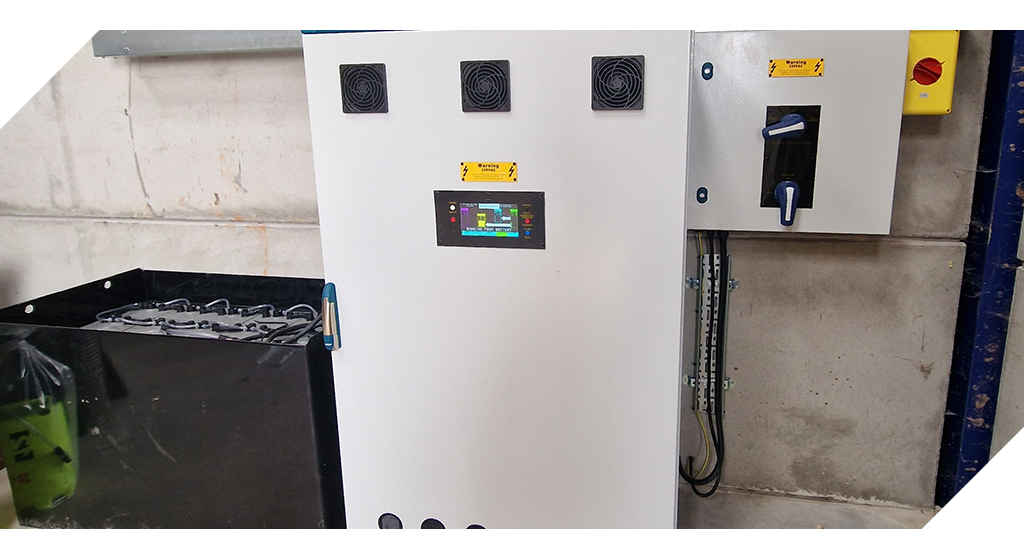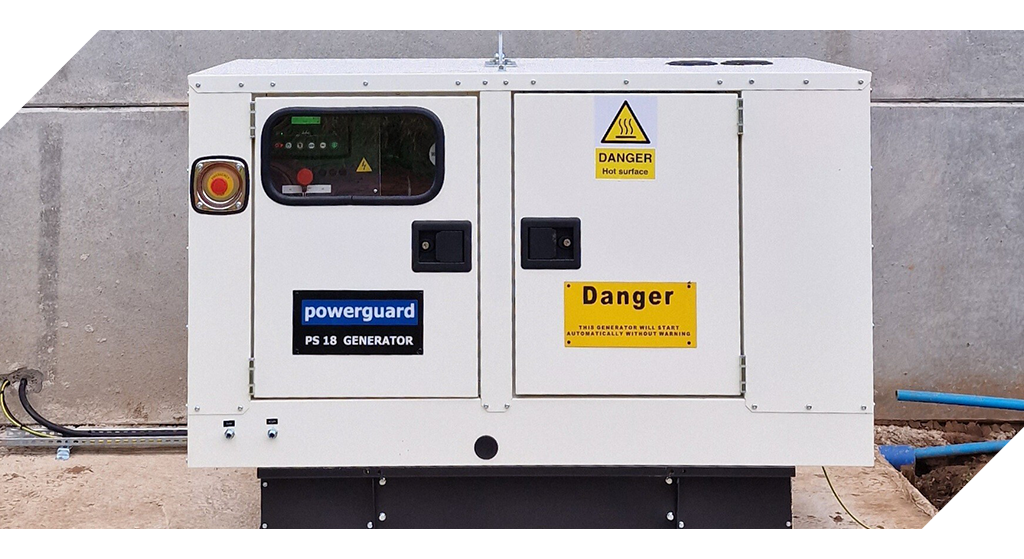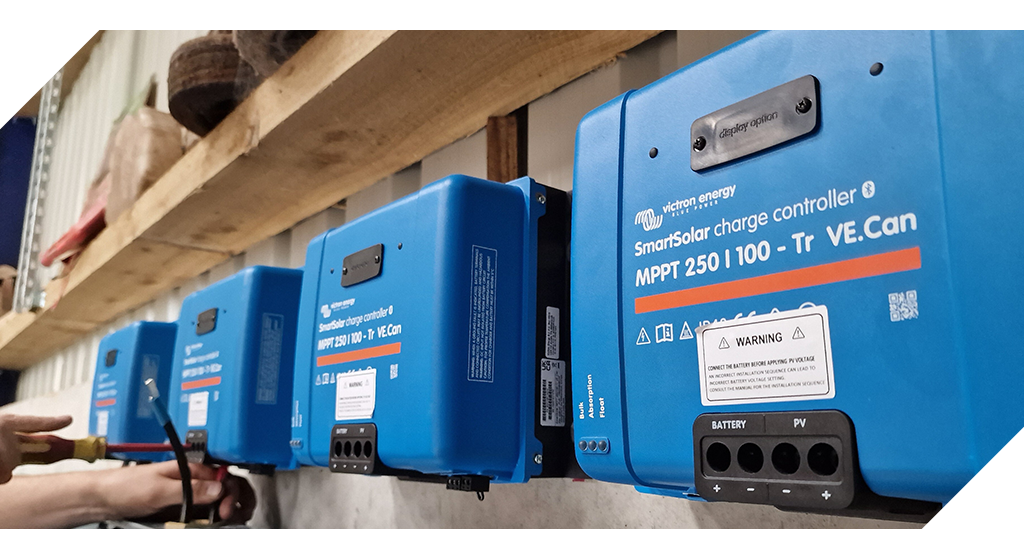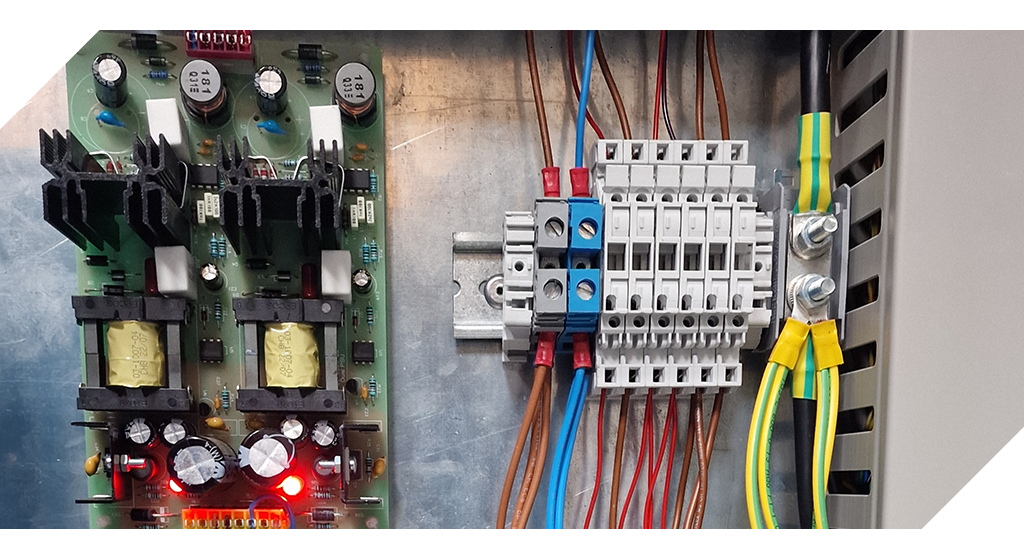When an off-grid farm client contacts us at Powerguard, it will usually be because they have inconsistent or non-existent grid access and need a stable, sustainable power supply.
This was certainly the case with Roobottom Farm in Northamptonshire.
Because they had no reliable grid supply and were concerned about rising energy costs, the farm sought a dependable, long-term energy solution to power essential daily operations and the building of a new farmhouse.
The bespoke system we designed, fabricated and installed included a 15 kVA power control unit, battery storage and 60 solar panels – all to deliver consistent, cost-effective and sustainable electricity.
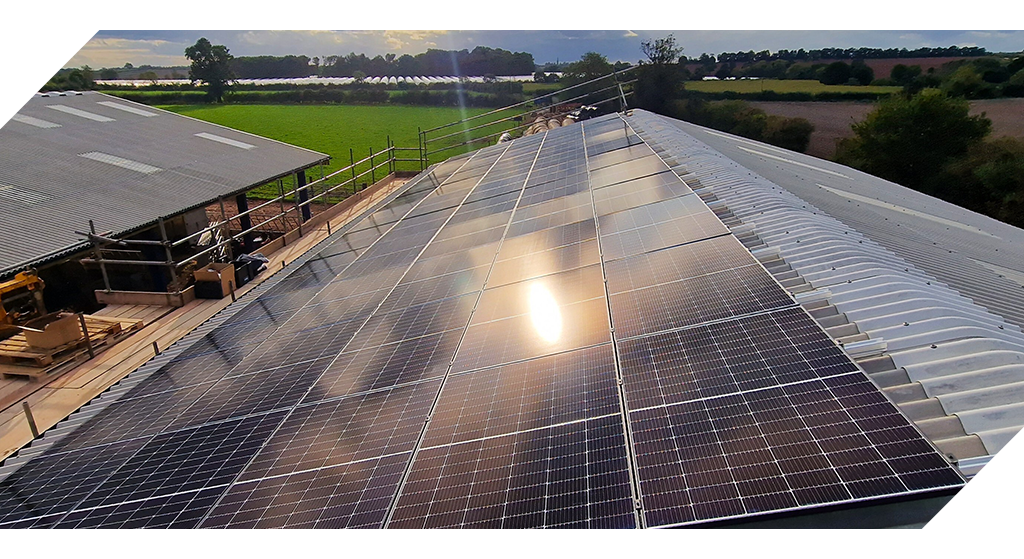
Contents
- The Off-Grid Power Supply Challenge
- The Powerguard Solution
- The Powerful Results
- Conclusion: Why Powerguard?
The Off-Grid Power Supply Challenge
Located in the heart of Northamptonshire, the farm faced significant barriers to securing a reliable electricity supply. With limited access to the grid, powering the farm’s day-to-day operations – and accommodating their plans to build a new farmhouse – was becoming increasingly difficult and expensive.
The farm required an energy solution capable of supporting:
- Farm machinery and irrigation systems
- Lighting and security infrastructure
- The construction of the new farmhouse
- Future residential needs (for that new farmhouse)
Prior to the Powerguard installation, the farm relied on diesel generators. However, this method proved unsustainable due to:
- Rising fuel costs which were impacting the farm’s profitability
- Interruptions in supply thanks to frequent maintenance needs
- Inconsistent power reliability impacting productivity
- High carbon emissions, which clashed with the farm’s sustainability ambitions
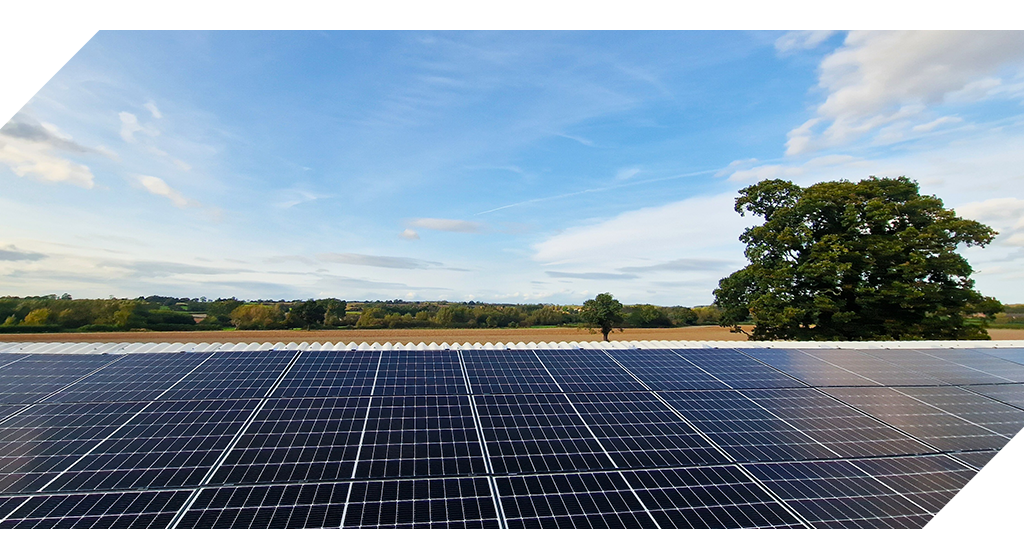
The Powerguard Solution
A fully off-grid farm solar energy system was designed, built and installed by Powerguard to meet the farm’s unique demands. This comprised:
Solar Panels:
System Capacity: We installed 60 solar panels, each rated at 420W.
Energy Production: The panels were expected to produce approximately 80-90 kWh per day, depending on sunlight conditions, which would be more than sufficient to cover the farm’s daily energy demands, including irrigation, lighting, refrigeration and running machinery.
Battery Storage:
Battery Bank: Supporting the solar panels – a state-of-the-art battery storage system was installed to capture excess energy generated during the day. This allows the farm to continue to operate at night or on especially cloudy days.
Capacity: The battery bank has a capacity of approximately 22.32 kWh, providing more than enough backup power for the farm to continue operations even during periods of low sunlight.
15 kVA Power Control System:
Energy Management: The 15 kVA power control system manages the distribution of energy from the solar panels to the battery and the farm’s operations. It ensures that energy usage is optimised, preventing overloads and ensuring a consistent power supply.
Real-Time Monitoring: The system includes monitoring capabilities to track energy production, consumption and storage, allowing the farm’s owners to make adjustments as necessary to help ensure efficiency.
Backup Diesel Generator:
For Emergency Use Only: Although the system was designed to allow Roobottom to operate as an entirely off-grid farm, a small diesel generator was retained. However, its use is expected to be limited to those rare periods of extended low solar production.
The Powerful Results
The system delivered a range of immediate and long-term benefits to the farm:
Energy Independence:
Roobottom off-grid farm achieved full energy independence, with the solar panels generating more than enough energy to meet their daily needs. Reliance on the diesel generator was virtually eliminated, with the new, efficient, backup generator only being used in emergencies.
Cost Savings & Return on Investment:
The transition to solar power resulted in significant savings on energy costs. The farm’s energy expenses dropped by over 80%, as reliance on grid electricity and diesel fuel was dramatically reduced. The investment in the off-grid system was projected to pay for itself within 5-7 years through these savings alone.
Operational Reliability:
The farm no longer faces disruptions from grid outages, ensuring that critical operations such as irrigation, refrigeration and security systems remain functional at all times.
The battery storage system provides enough backup to cover nighttime and cloudy periods, ensuring continuous operation.
Sustainability:
The farm significantly reduced its carbon footprint by moving away from diesel fuel and relying on renewable solar energy. This shift aligned with the farm’s sustainability goals and contributed to the company’s efforts to promote environmentally-responsible farming practices.
Conclusion: Why Powerguard?
This off-grid farm system demonstrates the viability of Powerguard systems for agricultural operations, offering long-term financial savings, energy security and environmental benefits.
Unlike a grid connection, which could no-longer be financially justified, the Powerguard system delivers a clear return on investment, with no limitations on how much power the client can generate.
Powerguard off-grid systems are designed, built and installed entirely by our team. We don’t feed into the grid and we don’t impose restrictions. Whether it’s a farm, home or business, we scale our systems to meet your exact requirements.
Thinking of going off-grid? Get in touch to see how Powerguard can support your energy needs.
Our Products
- Water Pumps
- Industrial (Three Phase)
- Industrial (Single Phase)
- Residential
- Portable
- Off-Grid Power Systems
- Central Battery Systems for Emergency Lighting
- Mini grid & EV charging
- Marine Systems
- Renewable Energy
- Generator & Control Systems
- Uninterruptible Power Supply (UPS) Systems
- Inverters & Inverter Systems
- Battery Chargers Systems
- Diesel & Gas Generators
